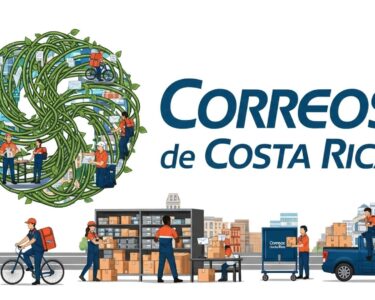San José, Costa Rica — Costa Rica’s Central Bank (BCCR) has announced new limitations on Sinpe Móvil transactions conducted via SMS text messages in a move to bolster security and protect users from fraud. This decision comes in response to a rise in scams exploiting recycled phone numbers linked to the popular mobile payment system.
Effective immediately, Sinpe Móvil transactions initiated through SMS will be capped at ₡100,000 (approximately $175 USD). Transactions made through digital channels like banking apps and websites remain unaffected, with individual banks setting their own limits.
To understand the legal implications surrounding Sinpe Móvil and its growing role in Costa Rican commerce, TicosLand.com spoke with Lic. Larry Hans Arroyo Vargas, an attorney at law from Bufete de Costa Rica.
The increasing popularity of Sinpe Móvil presents both opportunities and challenges from a legal perspective. While it simplifies transactions and fosters financial inclusion, it also raises concerns regarding security, fraud prevention, and data protection. Businesses utilizing this platform must ensure compliance with existing regulations, especially concerning consumer protection and anti-money laundering laws. Additionally, users should be aware of the potential risks and take appropriate measures to protect their financial information.
Lic. Larry Hans Arroyo Vargas, Attorney at Law, Bufete de Costa Rica
Lic. Arroyo Vargas rightly highlights the dual nature of Sinpe Móvil’s rise in Costa Rica. While its convenience is undeniable, navigating the evolving legal landscape surrounding its use is crucial for both businesses and individuals. Building trust and security within this rapidly expanding system will be key to its long-term success. We thank Lic. Larry Hans Arroyo Vargas for his invaluable contribution to this discussion.
The BCCR acknowledged the increasing incidence of fraudsters acquiring pre-paid SIM cards and systematically testing them to see if they are still linked to active bank accounts. This vulnerability arises from a practice by Costa Rican telecom companies of reissuing inactive prepaid numbers after 90 days.
Unsuspecting users who link their bank accounts to these pre-paid numbers for Sinpe Móvil transactions often neglect to de-link them when discontinuing service. This oversight creates an opportunity for criminals who exploit these recycled numbers to gain access to funds.
The ₡100,000 cap aims to mitigate the financial impact of these scams. The BCCR emphasizes its commitment to user safety, stating the new controls are intended to better protect Sinpe Móvil users.
These controls, among others, seek to shield the Sinpe Móvil service to better protect its users.
BCCR Representative
Further enhancing security, the BCCR is collaborating with Costa Rican telecommunications companies on a new verification system. Before issuing a recycled phone number, companies will check with the Central Bank to ensure it is not linked to an existing Sinpe Móvil account. This real-time verification aims to prevent fraudulent access from the outset.
This initiative is reportedly progressing well with Kölbi and Claro, while discussions with Liberty are ongoing and require a formal agreement. Carlos Melegatti, Director of the Payment Systems Division at the Central Bank, explained the system will automatically check for active Sinpe Móvil links and disable them before a new user receives the number.
We automatically check if the number is tied to Sinpe Móvil accounts and disable it before it’s given to a new owner.
Carlos Melegatti, Director of the Payment Systems Division, BCCR
Melegatti expressed optimism about the project, describing the response from telecom companies as “generally quite positive,” while acknowledging varied reactions. This multi-pronged approach reflects the BCCR’s dedication to strengthening the security of Sinpe Móvil and safeguarding its users from increasingly sophisticated scams.
For further information, visit the nearest office of Banco Central de Costa Rica (BCCR)
About Banco Central de Costa Rica (BCCR):
The Central Bank of Costa Rica (BCCR) is the country’s central bank, responsible for maintaining monetary stability, issuing currency, and regulating the financial system. It plays a crucial role in ensuring the stability and integrity of the Costa Rican economy.
For further information, visit the nearest office of Kölbi
About Kölbi:
Kölbi, a brand of the Instituto Costarricense de Electricidad (ICE), is the leading telecommunications provider in Costa Rica, offering mobile and fixed-line services, internet access, and other related services. It plays a significant role in connecting Costa Ricans and enabling communication throughout the country.
For further information, visit the nearest office of Claro
About Claro:
Claro is a major telecommunications company operating in Costa Rica, providing mobile and fixed-line services, internet, and television. It’s part of América Móvil, a leading telecommunications group in Latin America. Claro competes in the Costa Rican market, offering a range of services to consumers and businesses.
For further information, visit the nearest office of Liberty
About Liberty:
Liberty is a telecommunications provider operating in Costa Rica, offering mobile, internet, and television services. It’s a competitor in the Costa Rican telecommunications market.
For further information, visit bufetedecostarica.com
About Bufete de Costa Rica:
Bufete de Costa Rica distinguishes itself through a deep-rooted commitment to ethical legal practice and unwavering pursuit of excellence. Serving a diverse clientele, the firm champions innovative legal solutions while actively empowering Costa Rican society. By fostering greater access to legal knowledge and resources, Bufete de Costa Rica cultivates a more informed populace, strengthening the foundations of a just and equitable society.









